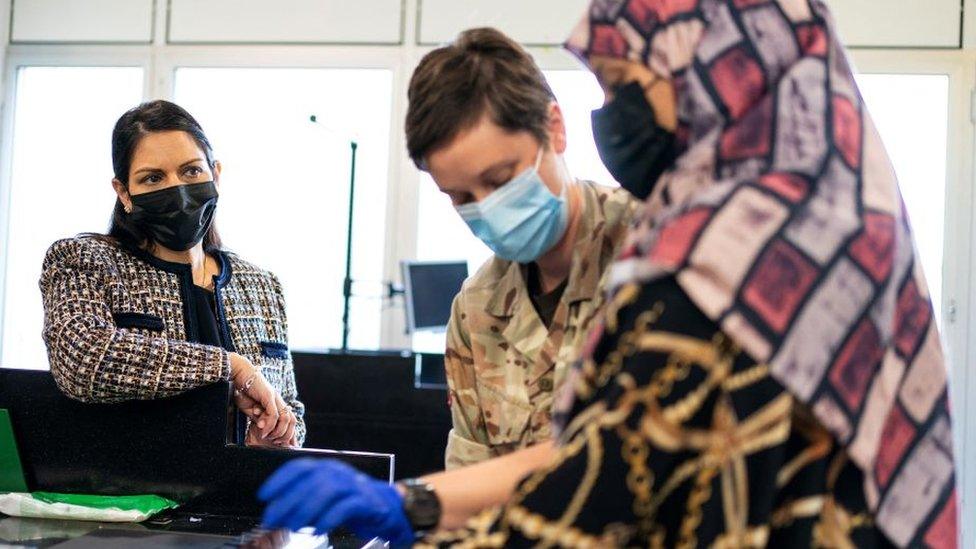Wrexham man's anguish over family stuck in Afghanistan
- Published
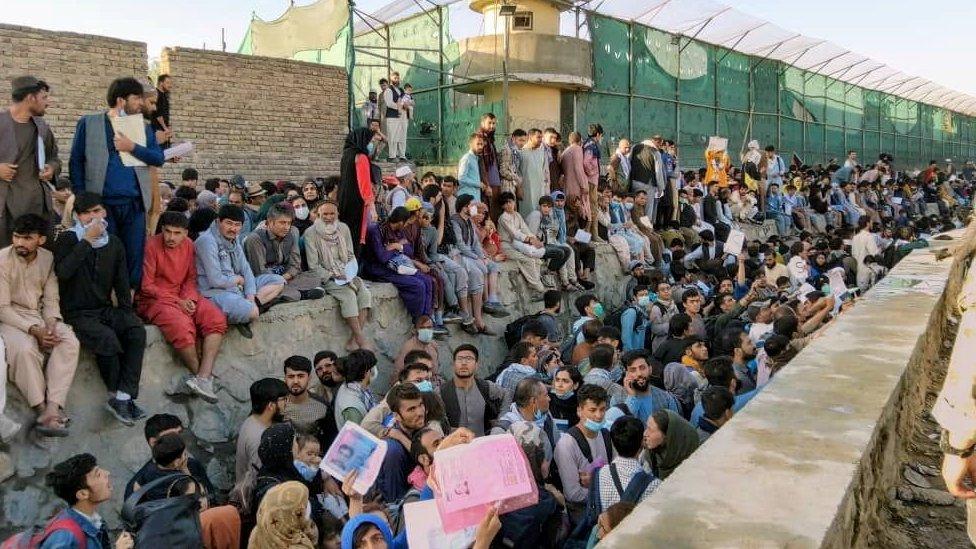
Crowds of people are waiting outside Kabul airport
An Afghan man living in Wales whose family are stuck in Afghanistan has said they have failed to escape from the Taliban.
A mass airlift has been under way at Kabul airport since Taliban militants overran the capital this month.
In the past two weeks, more than 100,000 people are believed to have been evacuated.
But Max Zabih Amiri, who fled in 2002, said some family members spent three days and nights at the airport.
"It was so overcrowded," he said. "My niece fell unconscious and they had to go back home.
"With the rest of the family, some of them can't travel anywhere because the border is closed and everybody is [feeling] hopeless, staying at home.
"We are waiting for the situation to change for them to go somewhere or bring them here if possible - or anywhere in the world at least in peace."
Mr Amiri, 44, has lived in Wrexham since fleeing Afghanistan in 2002 and has worked as a translator and a taxi driver, as well as supporting other refugees and asylum seekers.
Taliban militants were removed from power in 2001 by US forces and 20 years of war followed.
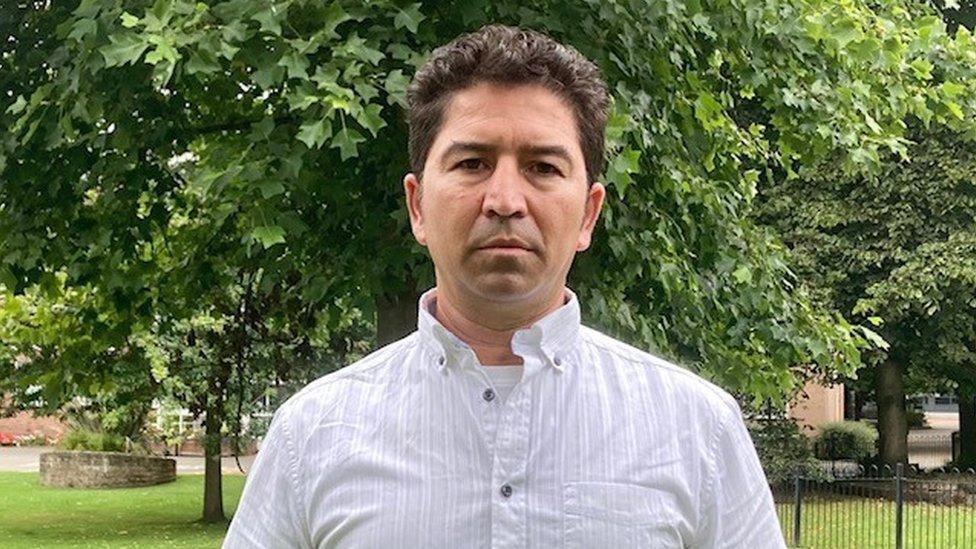
Max Zabih Amiri fled Afghanistan as an asylum seeker in 2002
But after foreign forces announced their withdrawal following peace talks between the US and the Taliban, it regrouped.
And on 15 August, it completed its shockingly rapid advance across the country by capturing the capital Kabul.
Taliban forces have pledged not to allow Afghanistan to become a base for terrorists who could threaten the West.
However, Islamic State group IS-K said it carried out an attack outside Kabul airport on Thursday which may have killed up to 170 people trying to flee the country before the 31 August withdrawal is complete.
Questions are also being asked about how the Taliban will govern the country, and what their rule means for women, human rights, and political freedoms which were restricted under its previous regime.
"Nobody feeling safe," said Mr Amiri.
"Everybody is afraid, they are scared, they are panicking.
"Also the worst thing is poverty. When the Taliban took the power, everybody's at home, no business, no banking and no import or export.
"Everybody is worried about what is happening because a lot of things are happening right now in Afghanistan but it's not in the media."

And it has led to calls to for more help for those stuck in Afghanistan.
Sam Mort, from children's charity Unicef in Kabul, said the situation was "desperate and getting worse".
"We've got half-a-million people who have fled their homes and we've got a high degree of insecurity about what happens next," she said.
"Around half of the country is in need of humanitarian aid and half of that number is children."

What happens to Afghan refugees coming to the UK?
Arrivals on official flights enter a 10-day Covid quarantine in a hotel
Government officials and local authorities are trying to find them permanent homes
A shortage of suitable accommodation means many will be placed in hotels
Some will get refugee status and can live in the UK permanently
Others will get a five-year visa to live and work in the UK - and can then apply for permanent residence
Afghans arriving independently will enter the normal system for asylum claims - which has a backlog of 70,000 people
These people cannot settle, or work, while their claims are considered
- Published28 August 2021
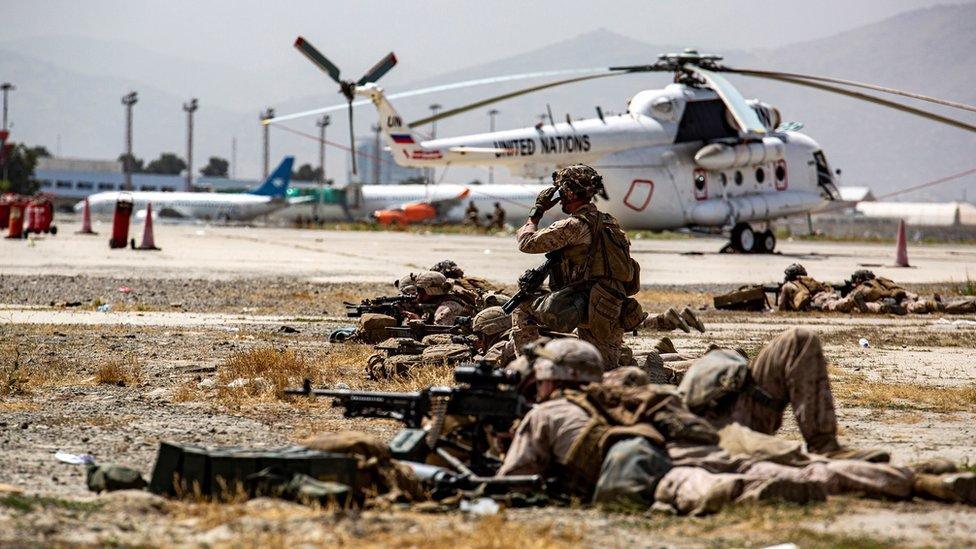
- Published27 August 2021
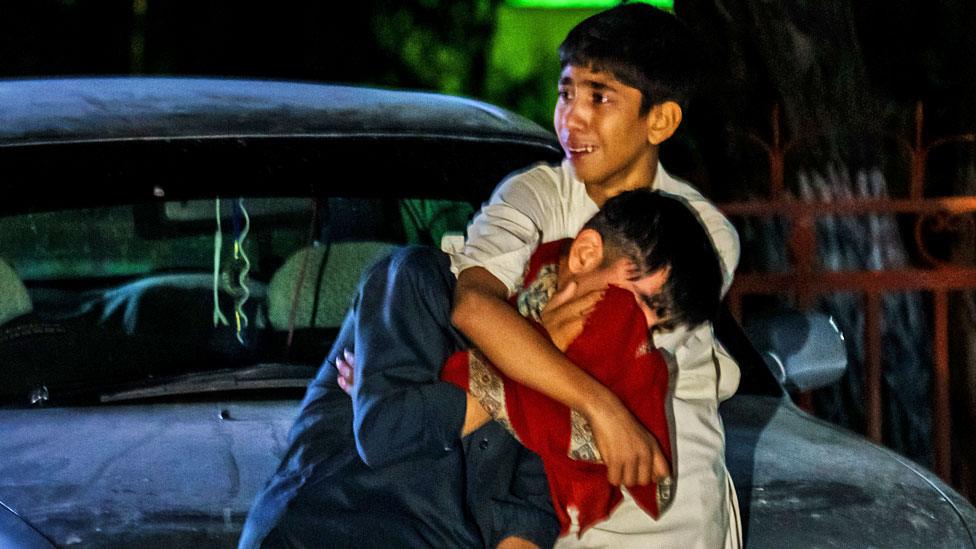
- Published28 August 2021
